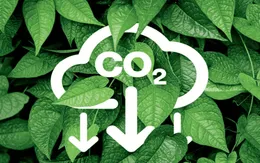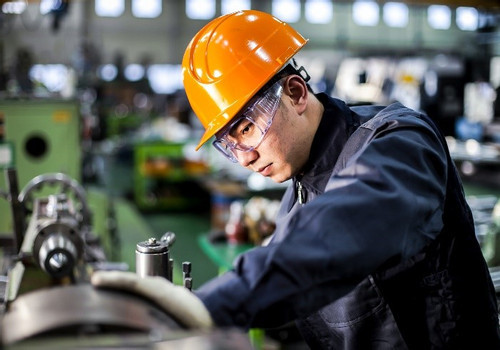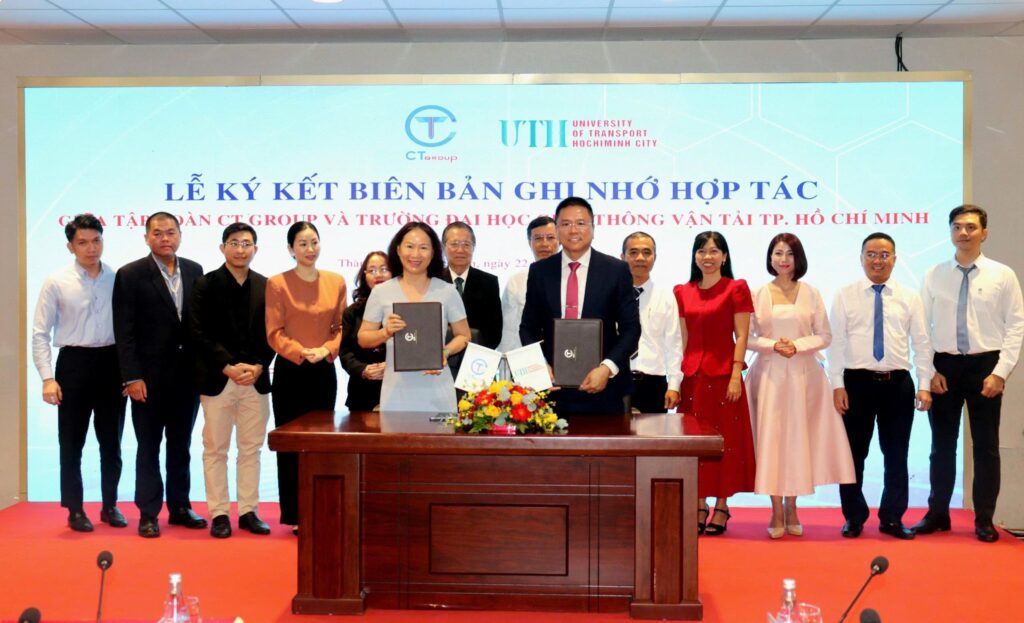July 19, 2024, Carbon Credit Trading Platform ASEAN (CCTPA) – a member of CT Group, in collaboration with Dalat University and Fairatmos, the first climate technology company in Southeast Asia, successfully organized a seminar “Implementing Carbon Credit Programs through Circular Economy Agriculture and Forestry Projects”.
Delegates and guests attended the seminar
The seminar aimed to promote circular economy development in the agriculture and forestry sectors through the implementation of carbon credit projects. This is a new approach that not only helps reduce greenhouse gas emissions but also opens up economic opportunities and sustainable development for businesses and farmers.
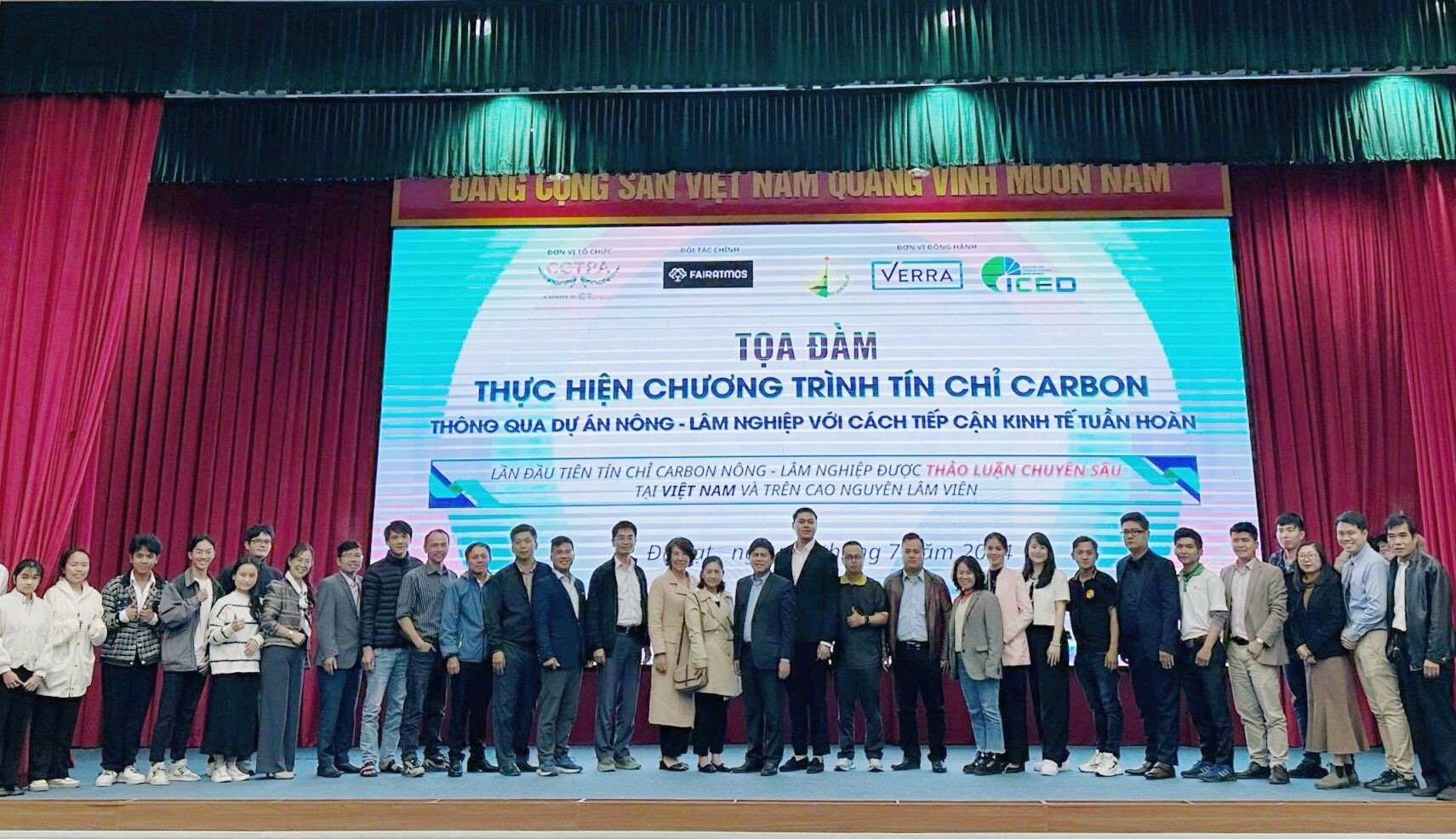
Forestry project and Carbon Credits
During the seminar, delegates shared about the importance of carbon credits and agriculture and forestry management. Registering a carbon credit project is the first step and requires projects to comply with specific standards and regulations. This process includes verifying and evaluating greenhouse gas emission reduction activities to ensure that projects are making a real contribution to the goal of mitigating climate change.
Mr. Nguyen Vo Truong An, Deputy General Director of CCTPA, shared: “CCTPA will provide comprehensive guidance to businesses and organizations in Vietnam on how to build carbon credit projects, registration procedures, verification and validation, as well as related carbon credit trading and offset mechanisms, as well as the application of carbon taxes both regionally and globally. In addition, based on emission reduction targets, CCTPA will advise on specific measures such as using renewable energy, optimizing production processes and deploying clean technologies that do not generate carbon emissions.”
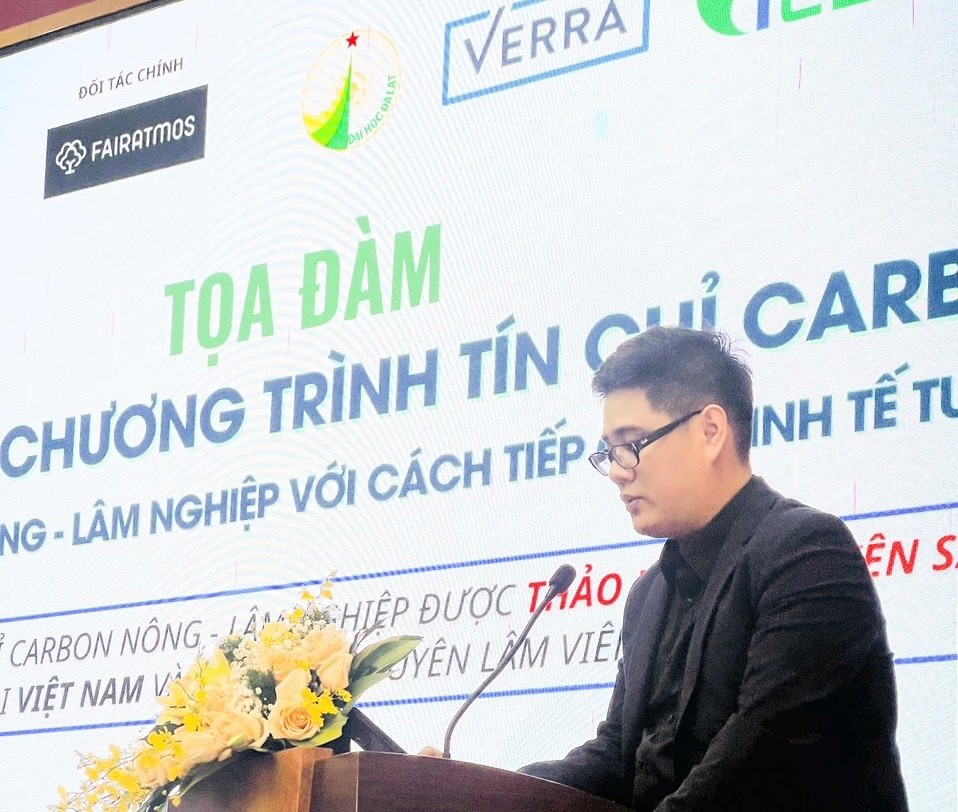
Mr. Nguyen Vo Truong An – Deputy General Director of CCTPA delivers his speech
Mr. Win Sim Tan, Regional Representative for VERRA in East and Southeast Asia, shared: “AFOLU (Agriculture, Forestry and Other Land Use) plays an important role in reducing carbon emissions and protecting biodiversity. Through AFOLU projects, we can promote sustainable land and mangrove forest use, improve agricultural productivity and reduce land degradation.”
In Vietnam, the Carbon Credit Trading Platform ASEAN (CCTPA) is the first and official partner of VERRA in carbon credit projects and climate change programs.
Application of Technology in Carbon Credit Projects
Also at the seminar, experts from Fairatmos – CCTPA’s exclusive partner in Vietnam – demonstrated the technology applied to carbon credit registration projects in agriculture and forestry. These technologies include the use of AI (Artificial Intelligence) to survey project potential from satellite data, providing accurate project potential, methodology, carbon storage and financial assessment, generating detailed reports on project design and costs.
Projects have the opportunity to be accompanied by CCTPA and Fairatmos throughout the entire process from the pre-feasibility stage to the carbon credit transfer stage and are fully managed and reported on a digital platform. This is of great significance as it helps the Project to “track” the project’s development and registration process effectively, not only in terms of information but also cost optimization (investment return analysis – project development report; project value proposition to potential investors). In other words, from this technical platform, CCTPA answers the Project’s burning question when the investment cash flow is the first “technical trouble”.
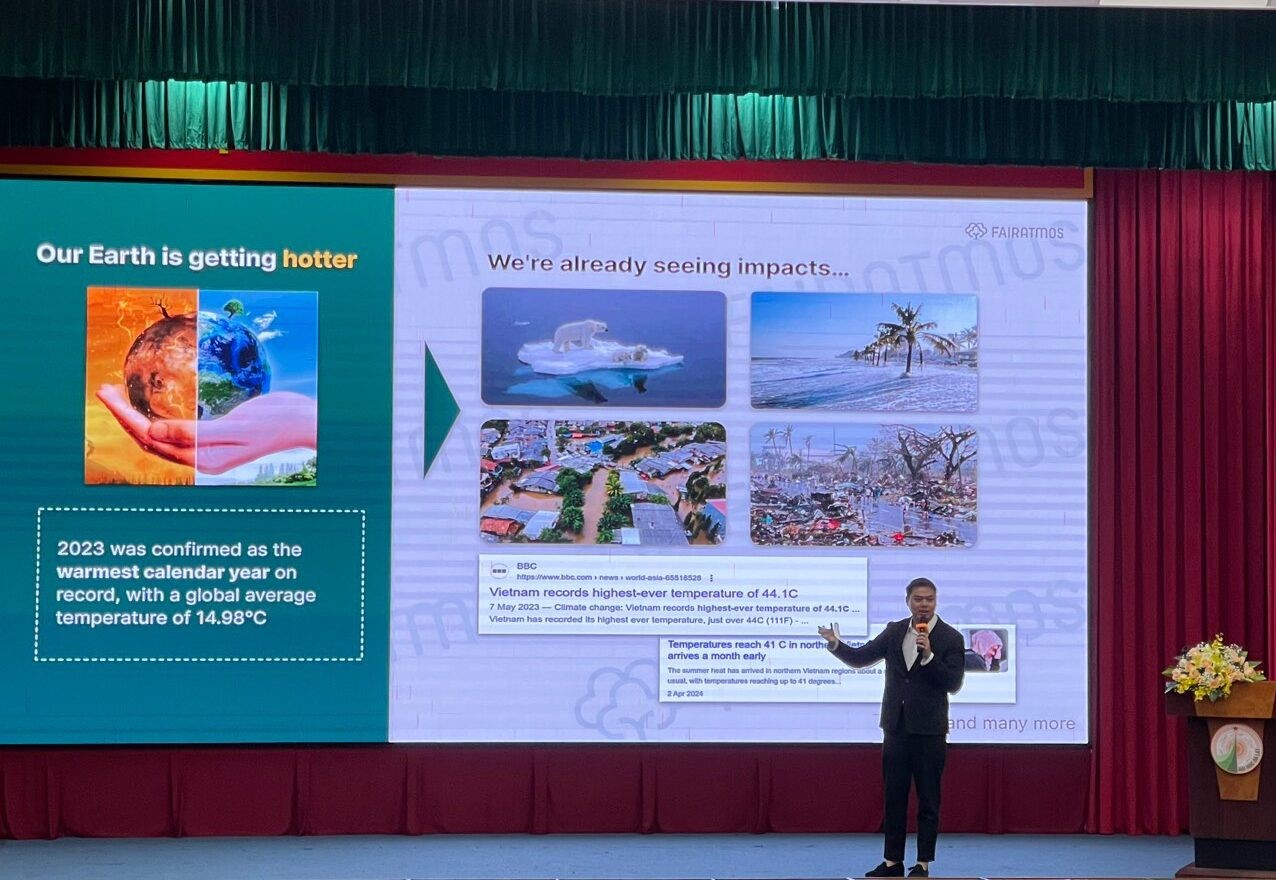
Mr. Zaky Naufal – Fairatmos representative spoke
Approaching a Circular Economy in Agriculture and Forestry Projects
A circular economy in agriculture and forestry optimizes resources and minimizes environmental impact. Contemporaneous, it creates new job opportunities and increase competition in the agriculture and forestry industry.
Seminar participants agreed that the application of carbon credits in agriculture and forestry not only helps reduce emissions but also brings many economic and environmental benefits. In particular, the circular economy approach helps optimize resource use to create a more sustainable and efficient system.


